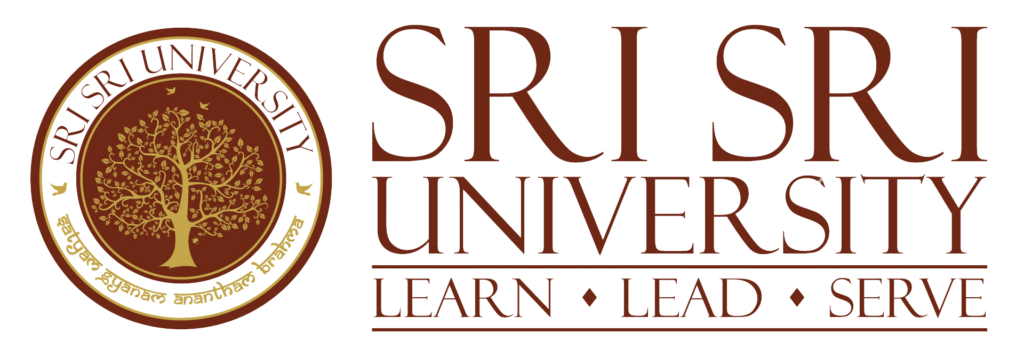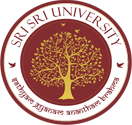pROGRAM HIGHLIGHTS
- Introduction
- Course Details
- Program Outcome
MA Hindu Studies
MA Hindu Studies offers multifaceted scope in exploring intriguing aspects of our lives and society. Answers to fundamental questions like ‘How religion impacts humanity?’ or the anthropological origin of religion or exploring the history of the literature of religion can be discovered through the course of the program.
In a more holistic term, the course of MA Hindu Studies won’t be just limited to the studies of Vedas, Upanishads, Puranas, and Itihaasas but will also pave a way for you to realize the importance of economics and culture, politics, geography, foreign policies, Law and jurisprudence, Media and the Psychology of the society that played a vital role in shaping our perception of Hinduism as a religion.
In the course of Hindu Studies, you would stand to achieve the following:
- Articulate the position of Hindu values in the present context.
- Develop a Hindu view of the universe and all of its constituents (environment, the living, the non-living, and the humanity).
- Understand the philosophy of truth, justice, freedom, equity, women, and the environment.
- Understand relationships between Hindu philosophy, practices, economy, history, state, law, arts, religion, literature, culture, and societies.
- Study other religious, spiritual, and secular traditions, ideologies, and systems.
- Explore the chasm between science, religion, and spirituality.
- Develop methods for conflict resolution, promotion of truth, peace, and justice.
When it comes to studying or research related to Hindu Studies, there has been no significant ground-work on the same, which necessitates a renowned focus. With heightened strategic importance of India as a global power in terms of its diplomacy, strategic geo-political ties and consumer market, the inquisition related to Hindus Studies is pre-emptively analysed to grow significantly, offering lucrative career opportunities.
Course Details
Qualifications and Duration
- 2 years: 4 semesters
- Any student with a Bachelor’s Degree from a recognized institution.
[Students of Sciences, Engineering, and Medicine may also apply]
LEARNING OBJECTIVES AND OUTCOMES (LOCF)
A student with a MA degree in Hindu Studies shall:
- Develop a good understanding of foundational principles underlying Hindu civilization, society, and culture. These principles provide a basis through which Hindus, despite the endless diversity present amongst them, can relate to each other.
- Develop a good understanding of analytical methods through which knowledge is analyzed and processed. These methods fall in two categories:
- Methods as laid out in Hindu darshanas: Study of these methods is important as it will help the student understand Hindu conceptions of the individual, family, relationships, society, state, environment, and the entire cosmos. Further, such methods will also help her understand other societies, states, and civilizations through Bharatiya lenses.
- Methods as developed in the West: The principal methods amongst these are biographical, new-historicism, formalism, psychological (both Freudian and Jungian approaches), feminist, Marxist (and Critical theory), and post-colonial theory.
- Develop a good understanding of Sanskrit, as it is in Sanskrit that an overwhelmingly large number of Hindu texts, both spiritual as well as secular, have been written. Thus, working proficiency in Sanskrit is a must for an MA (Hindu Studies) program. Proficiency in addition is also encouraged.
- Develop a very good understanding of Hindu practices (related to the individual, family, society, and the state), and how these practices (past, as well as present) are manifestations of core Hindu foundational principles.
- Shall acquire some expertise through electives in one or more of the following areas of knowledge: history, economics, law, society, culture, politics, education, arts, ethics, literature, military, comparative religion, linguistics, and natural sciences. Such an understanding will help the student contextualize her understanding of “Hindu” in the present.
All students shall be expected to take a total of 16 courses. Each course shall have four credits. Of the sixteen courses, 9 courses shall be Core (i.e. compulsory), and the remaining 6 shall be Electives (i.e. optional). A single credit corresponds to 16 lecture hours.
- To develop a good understanding of foundational principles underlying Hindu civilization, society, and culture
- To obtain a good understanding of analytical methods through which knowledge is analyzed and processed, including the methods laid out in Hindu philosophy as well as Western philosophy.
- To acquire a good understanding and working proficiency in the Sanskrit language, so that he/she can understand and further do an in-depth study of a large number of Hindu texts available in Sanskrit
- To become familiar with Hindu practices (related to the individual, family, society, and state), and how these practices (past, as well as present) are manifestations of core Hindu foundational principles
- To become eligible to go for doctoral studies and for vocations in teaching, education, counseling, administrative leadership, non-profit management, priesthood, social work, fine arts, and mass communication.
COURSE DETAILS
COURSE FACT SHEET
Any student with a Bachelor’s Degree from a recognized institution.
[Students of Sciences, Engineering, and Medicine may also apply]
ELIGIBILITY
Any student with a Bachelor’s Degree from a recognized institution. [Students of Sciences, Engineering, and Medicine may also apply]
Any student with a Bachelor’s Degree from a recognized institution.
[Students of Sciences, Engineering, and Medicine may also apply]
4 SEMESTERS
( 2 Year Full Time)
Any student with a Bachelor’s Degree from a recognized institution.
[Students of Sciences, Engineering, and Medicine may also apply]
INR 15000
(Tuition Fees Per Semester**)
What People Say About Us

Vandana Shiva, Social Activist
Author
This is a University for the future where everyone has a right share of economic, spiritual and social well-being. am so impressed by this campus because it isn't a clone of what is being taught everywhere else. It is connecting the ancient values to the needs of the present.

Dr. Vijay, Professor
University of Hyderabad
I am quite impressed with facilities, cordial staff and highly talented faculty members here. They have very unique programs. I am qu campus infrastructure and Integrated programs they are running right now. wish them luck for the Ayurveda hospital!

Vinish Kasturia
Mathematics Professor, IIT
I found the campus quite beautiful and serene. Around here, it is a different kind of experience. It is away from hustle and bustle of city near Cuttack and Bhubaneswar. If you want to do meditation or spend some time to do some serious work like writing, thinking, contemplating, this is a wonderful place.
Ms. Anja Jessurun Director Shankara
Health And Wellness By Ayurveda Netherlands, Europe
We needed more experienced people from India. Therefore, we visited Sri Sri University. After my visit I was very impressed by the total i.e. the location. the knowledge and the atmosphere. I met 10 students and they pitched their ideas to me, which they did really well. I was really impressed by the management and the things they said which I was recollecting all my way back and which will remain with me all my life.

Mr. Sourabh Sharma Manager
Supply Chain Maruti Suzuki India Ltd
Mr. Kishan is a work dedicated guy who quickly understood what the expectations were from the project & put all efforts to achieve the same. He was punctual throughout the SIP. The most important thing is, even not being from engineering background, he grasped the project so quickly and delivered very well. This speaks of his dedication and commitment for the work.
Applications for 2024 Open

